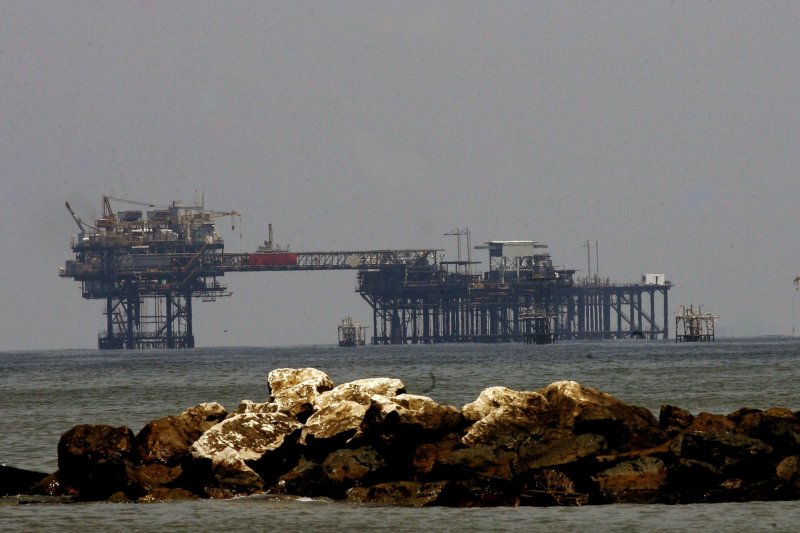OPEC optimism offset by concerns about geopolitical disputes and global trade tensions in their monthly market report for August. File Photo by A.J. Sisco/UPI |
License Photo
Aug. 13 (UPI) -- OPEC economists said there were bullish trends supporting the price of oil, but there were underlying concerns about political and economic disputes.
Economists at the Organization of Petroleum Exporting Countries left estimates for global growth in gross domestic product unchanged at 3.8 percent for 2018 in their market report for August. Modest growth in the United States was balanced by a slowdown in the European economy. In Asia, Japan's economy is sluggish with 1.8 percent GDP this year. China and India are growing strongly, but both economies start to slow down next year.
For the market in general, OPEC economists said the surplus in the five-year average for oil inventories for the world's leading economies now stands at a deficit. A glut of oil on the market helped push the price of oil below $30 per barrel in early 2016, though OPEC production constraints have helped eliminate the surplus.
"Furthermore, robust global demand and growing geopolitical tension have supported the rise in crude oil prices," they wrote. "In addition, an all-time record increase in financial market trader activity also contributed to bullish sentiment."
That bullish sentiment was not spilling over into the price of oil early Monday. Major indices were tracking slightly lower ahead of the start of U.S. trading.
OPEC economists recognized Brent, the global benchmark, and West Texas Intermediate, the U.S. benchmark for the price of oil, were mixed, but strong. Brent ended last month lower for the second consecutive loss, but stayed above $75 per barrel. WTI, meanwhile, jumped 5 percent to pass $70 per barrel for the first time since November 2014.
Both indices were below their July highs early Monday, however. Some support for the price of oil was because of temporary factors like a Saudi halt to shipments through the Red Sea to avoid conflict areas in Yemen.
On the demand said, OPEC revised its 2019 forecast lower by about 20,000 barrels per day. While economists expressed optimism about the pace of economic growth, they recognized there numerous challenges ahead.
The main area of concern is political in nature.
"Rising trade tensions, leading to mounting uncertainties, translating into falling business and consumer sentiment, may provide a significant downside risk to the current relatively positive outlook," they wrote. "Negative impacts on global investments, capital flows and consumer spending may also have a detrimental effect on the global oil market."
U.S. President Donald Trump has been using the strength of the U.S. economy to coerce trading partners to change from policies he sees as detrimental. From the European trade, to China and Turkey, the president has sought to reconfigure economic relationships through stiff trade tariffs that could undermine global growth.















